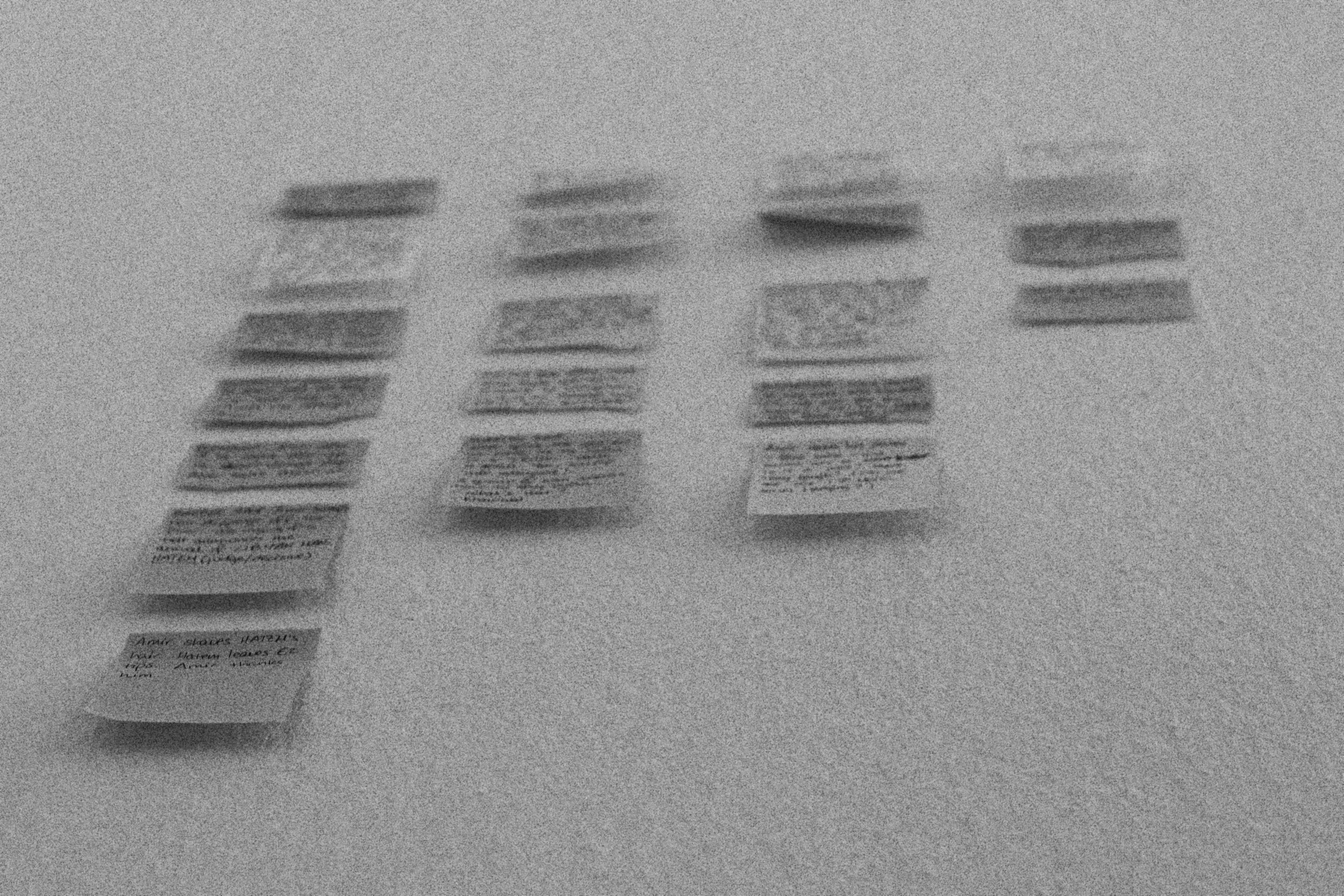This short screenplay is an oneiric portrait of Amir—a gay refugee living in Malta. Although fictional, Amir is closely based on real people I have gotten to know, and true experiences I had the privilege of discovering during a year of research and development as part of the Artivisti 2022/2023 programme.
I had the pleasure of being a part of Matteo's creative journey. During his mentorship, we delved deeply into the world of his upcoming project, and I witnessed his screenplay transformation from mere notes on a page to a fully formed story. Throughout our conversations, we remained mindful of the nuances and complexities of the characters that inhabit his screenplay. Discussing my cinematic influences and sources of inspiration felt like giving a gift that I knew was going to a good home. I am certain that one day soon, I will have the opportunity to see his work come to life, and I am eagerly anticipating the moment when I finally get to meet Amir on screen.
CHARLIE CAUCHI, PROJECT MENTOR
Supported by Arts Council Malta & Aġenzija Żgħażagħ.

NOTES ON
STORYTELLING
Monday 27 February. I attend JRS Malta’s Human Library. An intimate event open to the general public for a chance to listen and speak to asylum seekers, refugees and professionals who work with them. Few speak about their life in Malta, most decide to focus on the hardships of journeying to Malta.
This is what they came for, I imagine them thinking. This is what they want to hear.
“Whilst most migrants and refugees have lived experiences that transformed them into heroes, is it not unfair to require them to sustain the heroism for us to treat them in a dignified manner as neighbours, employers, partners, friends” (Dr Neil Falzon, Introduction to Our Islands II)?
I meet Amir on the University campus. After we warm up to each other, I open the laptop on the wooden bench we are sitting on and start transposing his voice into a digital wave. He quickly lets me know a journalist interviewed him not long ago. He is growing used to telling his story.
To portray survival not as a heroic act, but as a daily grind is to write about the mundane and the ordinary.
“In Western narratology, the plot is the dominant mode to which all characters are subordinate” (Ocean Vuong, ‘Ocean Vuong: The 10 Books I Needed to Write My Novel,’ Literary Hub).
At the Malta Gay Rights Movement (MGRM)’s first migrant meet-up, I ask about the asylum interviews. It’s not about telling one’s story, but about telling the right story, the expected story, hitting the right beats.
Lawyers tell me an asylum interview is an interrogation. No, a trial, by the end of which, the applicant’s sexuality and/or gender are adjudicated.
“… the burden of queer proof. In an asylum system which still presumes refugees to be heterosexual, LGBTIQ+ refugees must provide conclusive evidence that they are gay, lesbian or trans, or else find themselves deemed ‘not gay enough,’ or not to have the expected gay ‘demeanour’ and ‘dress code,’ to qualify for SOGI recognition” (James S. Williams, Queering the Migrant).
To allow space on the page (and eventually on the screen) for the mundane and the ordinary is to sometimes let the story be guided by associations—rhymes and digressions.
NINE
I met Nine at MGRM’s first migrant meet-up. Nine is a queer migrant from Northern Ireland with a long backstory and a deep loathing for borders. In this short, heartfelt essay, Nine writes about her first year in Malta. In doing so, she can’t help but reflect on the life she left in Malaysia, a place she called home for 10 years, and with which she still has a strong connection, not in the least because of her work coordinating Garabtaag. Garabtaag is a collective of volunteers helping queer and trans refugees amongst others. For more information on Garabtaag, contact garabtaag@gmail.com.
“This week marked the first anniversary of our move to Malta. But writing about my experience here is still a difficult assignment because it doesn’t take long for me to segue into writing about Malaysia (where I lived for ten years prior, and where my husband lived his whole life). Everything I observe about Malta is filtered through what I know of Malaysia; everything is a comparison. How long will it take before I can look at things from a local point of view – is that even possible?”